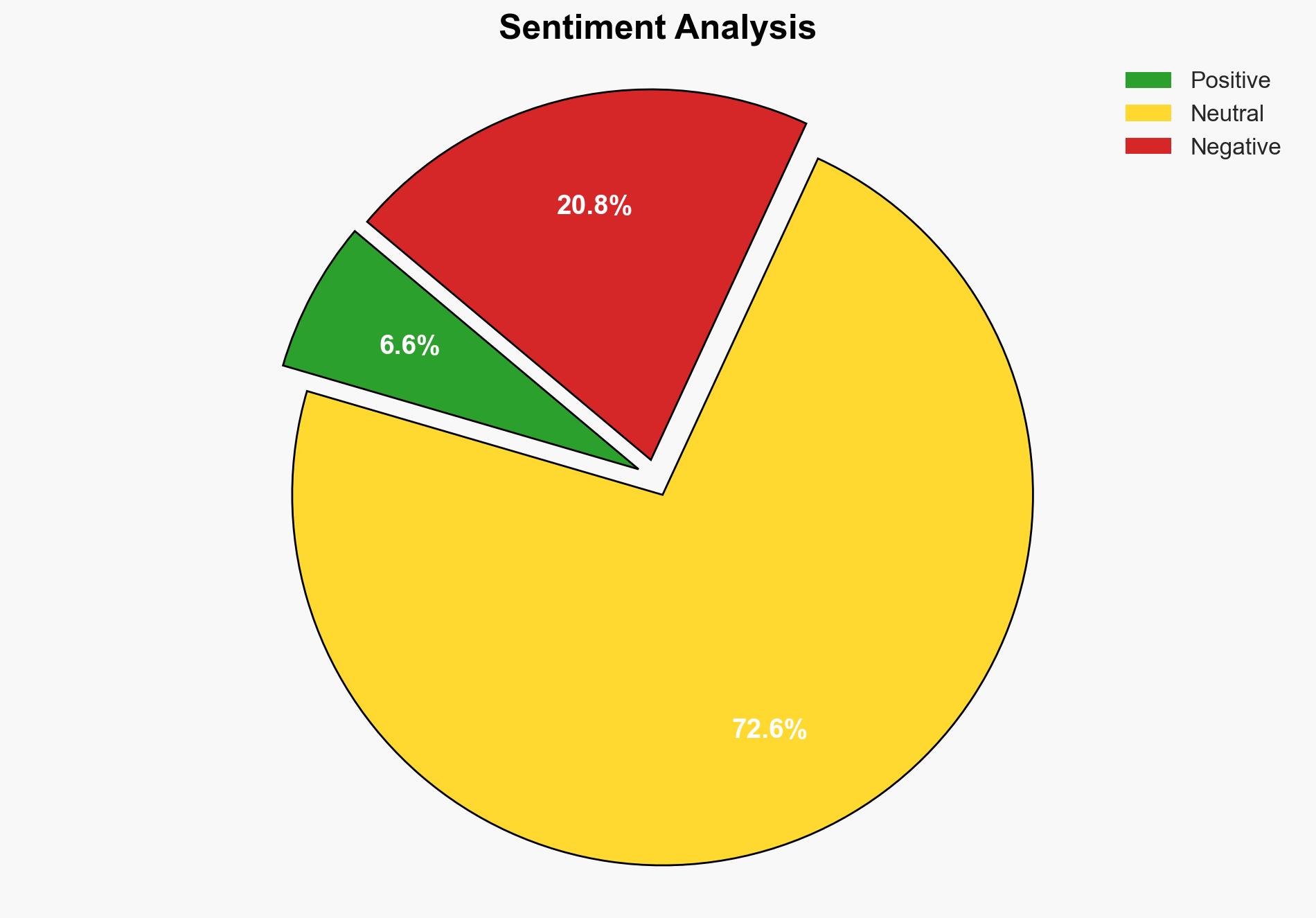Muslim nations reject Trump’s call to empty the Gaza Strip of its Palestinian population – ABC News
Published on: 2025-03-08
Intelligence Report: Muslim nations reject Trump’s call to empty the Gaza Strip of its Palestinian population – ABC News
1. BLUF (Bottom Line Up Front)
Muslim nations have collectively rejected the proposal by Donald Trump to relocate the Palestinian population from the Gaza Strip. The Organization of Islamic Cooperation (OIC) has instead supported a plan for an administrative committee to govern Gaza, backed by Egypt and other Arab states. This decision underscores a significant geopolitical stance against the proposed displacement, highlighting a unified regional opposition to external interference in Palestinian governance.
2. Detailed Analysis
The following structured analytic techniques have been applied for this analysis:
Scenario Analysis
The rejection of Donald Trump’s proposal by Muslim nations presents several future scenarios. One scenario involves increased regional cooperation among Arab states to support Palestinian governance, potentially leading to a more stable Gaza. Another scenario could see heightened tensions between these nations and external powers advocating for different solutions.
Key Assumptions Check
The assumption that external proposals for the Gaza Strip would be accepted without regional consensus has been challenged. The unified stance of Muslim nations indicates a strong preference for solutions that respect Palestinian autonomy and regional sovereignty.
Indicators Development
Key indicators to monitor include diplomatic engagements between OIC member states and external powers, changes in humanitarian conditions in Gaza, and any shifts in the political landscape within the Palestinian territories.
3. Implications and Strategic Risks
The rejection of the proposal carries significant implications for regional stability and international relations. It risks straining diplomatic ties between Muslim nations and countries supporting Donald Trump’s plan. Additionally, the decision could impact humanitarian aid flows and reconstruction efforts in Gaza, affecting millions of residents. The potential for increased regional cooperation among Arab states may also alter the geopolitical balance in the Middle East.
4. Recommendations and Outlook
Recommendations:
- Encourage diplomatic dialogue between involved parties to find a mutually agreeable solution for Gaza’s governance.
- Support humanitarian initiatives that address immediate needs in Gaza while respecting regional autonomy.
- Monitor and engage with regional organizations like the OIC to understand evolving geopolitical dynamics.
Outlook:
In the best-case scenario, increased regional cooperation leads to effective governance and reconstruction in Gaza. The worst-case scenario involves heightened tensions and potential conflict if external pressures persist. The most likely outcome is a continued diplomatic stalemate with incremental progress towards a regionally-supported governance model.
5. Key Individuals and Entities
The report mentions significant individuals and organizations, including Donald Trump and the Organization of Islamic Cooperation. These entities play crucial roles in the geopolitical dynamics surrounding the Gaza Strip and its future governance.





